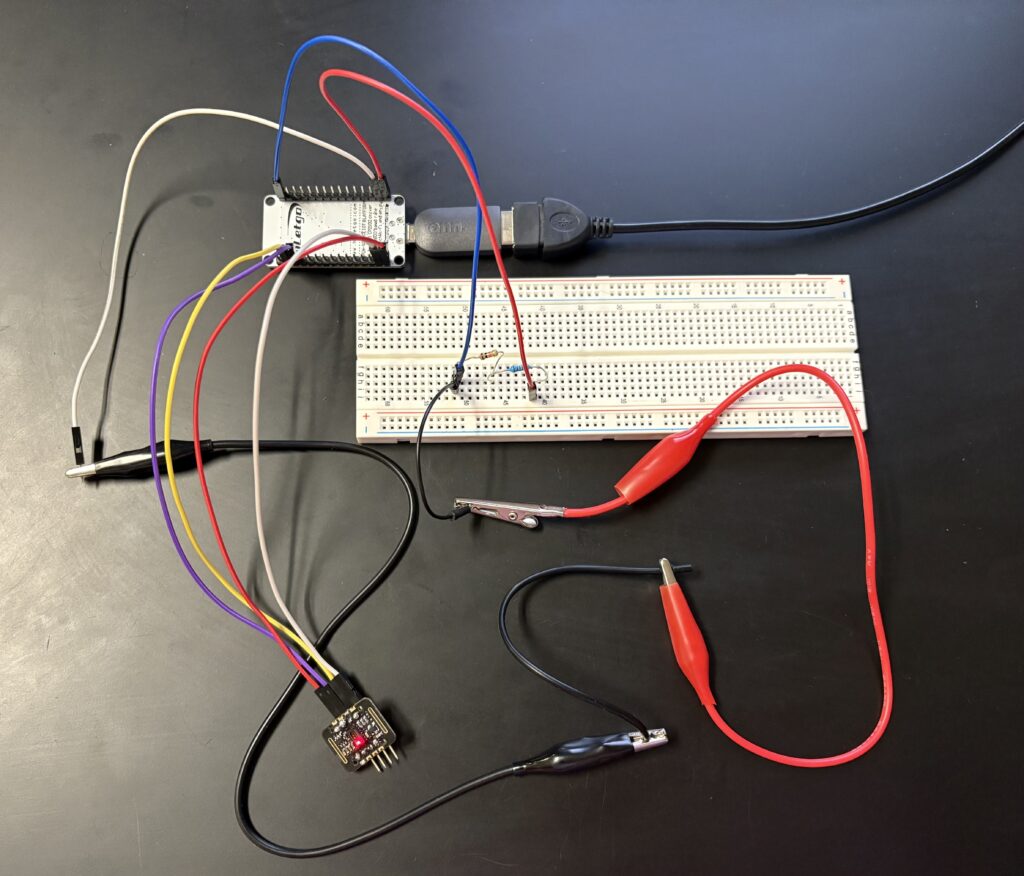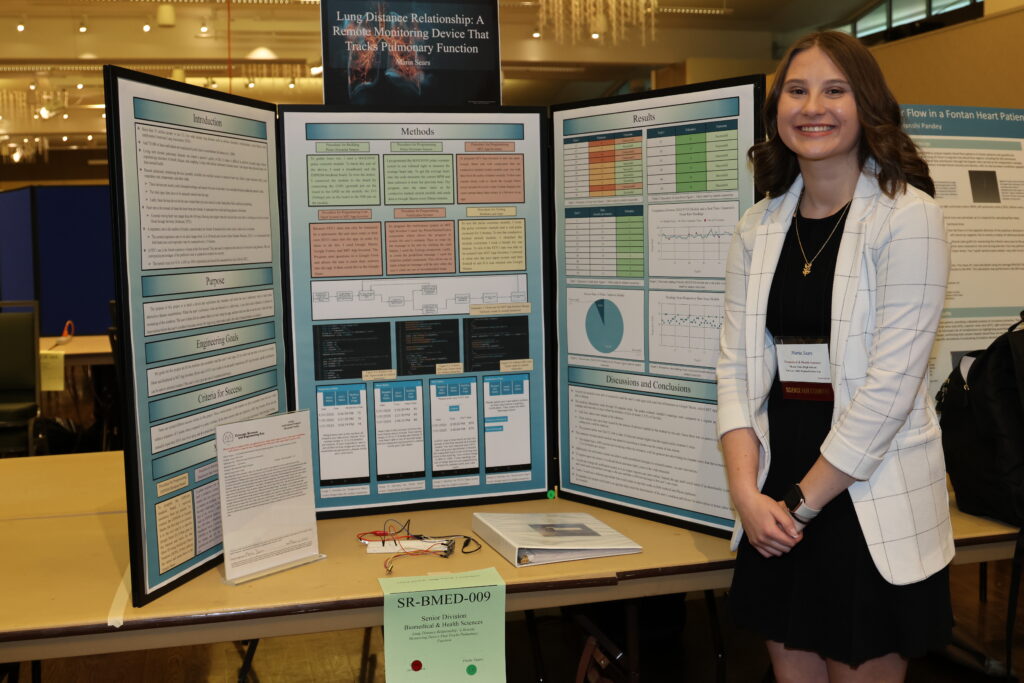When Maria Sears set out to build a medical device, she wasn’t working in a lab at MIT or shadowing researchers in a major city hospital. She was a high school student in Monte Vista, Colorado, a rural town better known for agriculture than engineering, using borrowed tools, sheer determination, and a powerful personal connection to guide her work.
This year, Maria was honored as the Colorado BioScience Institute’s Future of Life Sciences Award recipient (Senior Division) for her innovative project: a wearable device that monitors pulmonary function by tracking heart rate and respiratory rate in real time. She not only built the device, but also coded the software and designed an accompanying app to help patients and providers use the data to inform preventative care decisions.
“Chronic pulmonary diseases like asthma or cystic fibrosis can change a person’s life overnight,” Maria explains. “One day you’re fine, and the next you’re struggling to breathe. I wanted to build something that helps catch those shifts before they become emergencies.”
Maria’s inspiration came from her own experience living with asthma, and from seeing the challenges her grandmother, who relies on oxygen, faces daily. Her sister, a respiratory therapist, also influenced her thinking and encouraged her to pursue a project focused on pulmonary health. Maria’s device tracks key vital signs and could eventually help patients, particularly in rural areas like her own, catch early warning signs before a condition escalates.

“Where I live, we don’t even have a hospital in town. Just a small clinic,” she says. “If someone gets really sick, they might need to be flown to Denver. A tool like this could help people take action sooner and avoid that level of crisis.”
Maria’s journey into biomedical technology began just a year earlier, when she designed a fall detection device for seniors and taught herself to code using Arduino software. That experience sparked her interest in preventative care and set the stage for her award-winning work this year. For her latest project, she built the device using a pulse oximeter and a stretch sensor, and programmed it to collect and send data to a Google Sheet. She then used MIT App Inventor to build a basic app interface, which is another skill she taught herself along the way.
“I’d never built an app before,” she laughs. “But I figured it out piece by piece through online forums, help from mentors, and a lot of trial and error.”
Testing the device wasn’t easy either. Between school, errands, and daily life, Maria had to find time to wear and evaluate the prototype in small increments. But her sensors proved highly accurate: the respiratory sensor achieved a 100% success rate, while her heart rate monitor tested at 96%.
What makes Maria’s work even more remarkable is that she accomplished it all in a region with limited access to scientific infrastructure. She credits a supportive high school mentor and her own resourcefulness for helping her succeed, but acknowledges that, unlike students from urban centers, she didn’t have access to major labs or medical partners nearby.

“At the state science fair and international level, I was competing with students who had worked in Harvard or MIT labs. That’s just not even an option in my area,” she says. “But I wanted to prove that with the right idea and determination, you can still make something that matters. Even from a small town.”
Now headed to college to study business administration, Maria hopes to combine her passion for science with a deep understanding of entrepreneurship. Her long-term goal? To bring new ideas to life and maybe even one day earn a patent of her own.
“I’ve learned that if you have an idea, just go for it,” she says. “Even if someone says it already exists or it might not work, do it your way. You never know where it will lead.”
When asked what receiving the Future of Life Sciences Award means to her, Maria doesn’t hesitate:
“It shows me that this work matters. That people in the field—doctors, researchers, engineers—see value in what I’m doing. That gives me so much motivation to keep going.”
The Colorado BioScience Institute is proud to recognize students like Maria—participants in one of our Classroom programs that tap into students’ innate curiosity and spark an interest in STEM. Her journey is a powerful example of how early exposure leads to deeper engagement, as the Institute supports learners from the classroom to campus to career.